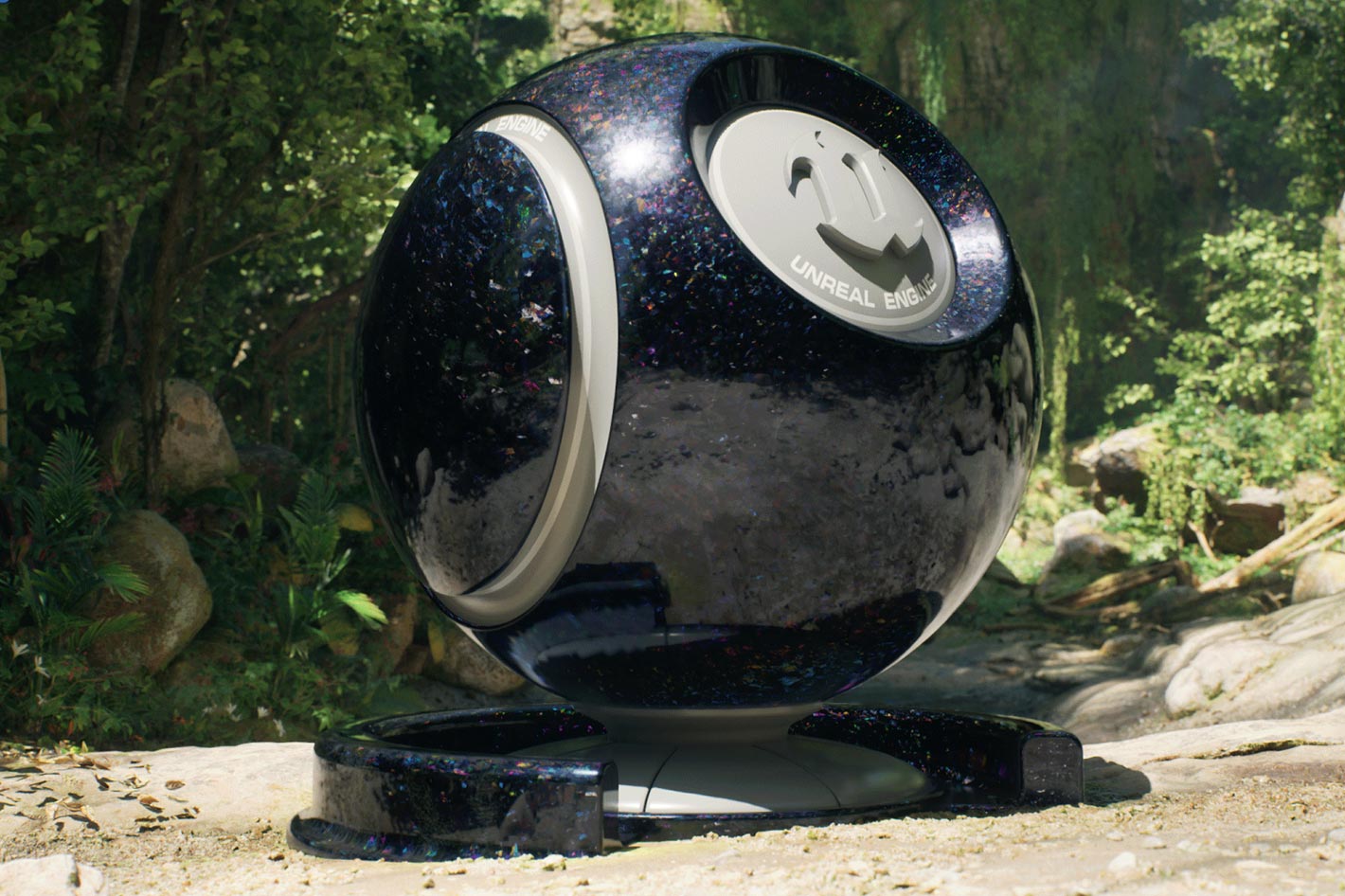
One of the highlights of Epic Games presence at the recent Game Developers Conference was the Electric Dreams demo, which ProVideo Coalition has shared with its readers in May. The demo offered a first look at exciting new Unreal Engine features: an experimental new Procedural Content Generation framework (PCG), a new material authoring system called Substrate, and the latest physics developments in Unreal Engine.
The Electric Dreams environment sample project enables users to explore the demo’s lush jungle environment, which was constructed using just a handful of Quixel assets. With these assets, PCG is able to quickly and seamlessly populate worlds, which can be adjusted in real time based on gameplay or other requirements. For users building virtual worlds, PCG represents a fast, scalable, iterative design pipeline. The sample also enables users to explore Substrate, as well as how PCG integrates with other UE5 features including Lumen, Nanite, and Soundscape.
Procedural Content Generation framework (PCG), which pushes the boundaries of what creators can expect out of the box, delivering innovative new functionality in Unreal Engine, can be used directly inside Unreal Engine without relying on external packages. The framework includes both in-editor tools and a runtime component.
At the Game Developers Conference Epic Games said that “the PCG tools enable you to define rules and parameters to populate large scenes with Unreal Engine assets of your choice, making the process of creating large worlds fast and efficient. The runtime component means that the system can run inside a game or other real-time application, so that the world can react to gameplay or geometry changes. The PCG tools can also be used for linear content requiring substantial numbers of assets, such as large architectural projects or film scenes.”
The team also noted, last May, that “this is an early look at a Procedural Content Generation framework” an experimental feature that will be further developed over future releases and that is not recommended for production work. The same warning applies to Substrate, a new way of authoring materials that gives you more control over the look and feel of objects used in real-time applications, such as games, and for linear content creation.
Although the note “not recommended for production work” continues to be valid, you can not try Procedural Content Generation yourself, as Epic Games has released the complete environment from the demo as a free sample project.
Download the sample project here: https://unrealengine.com/marketplace/product/electric-dreams-env
